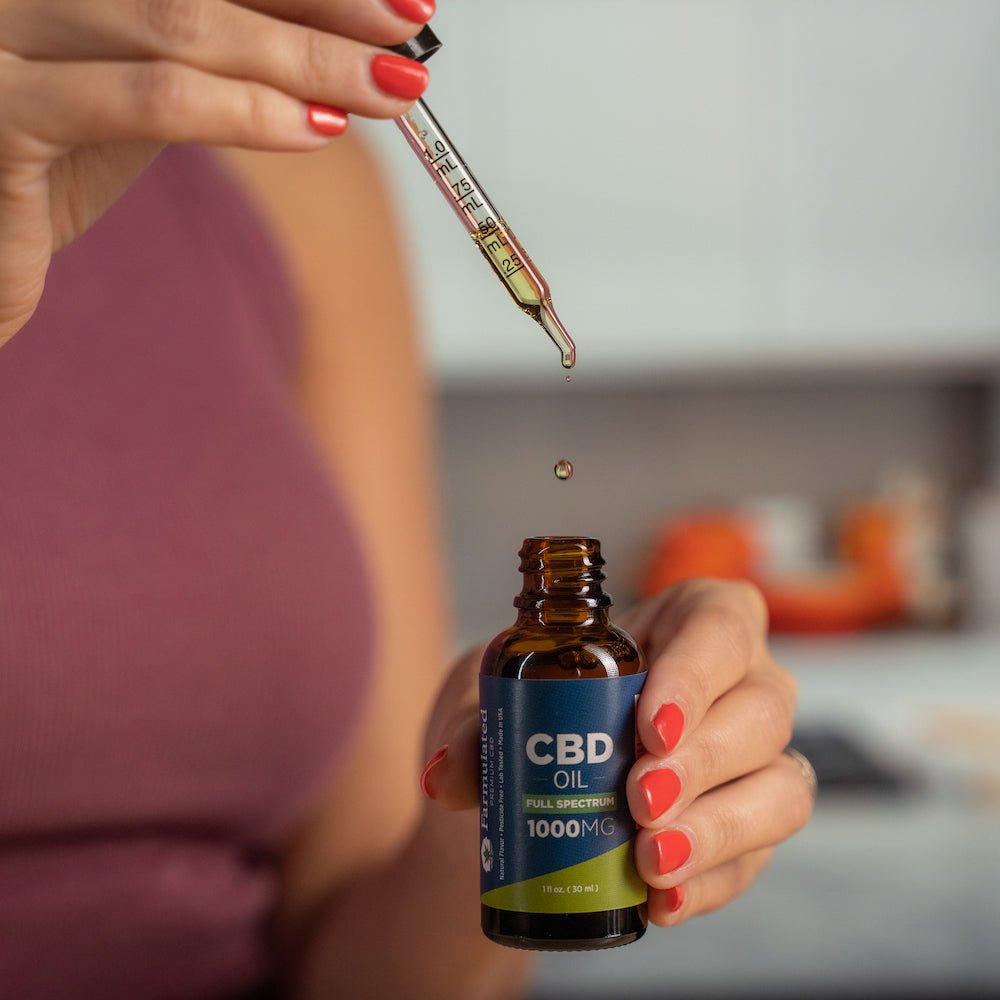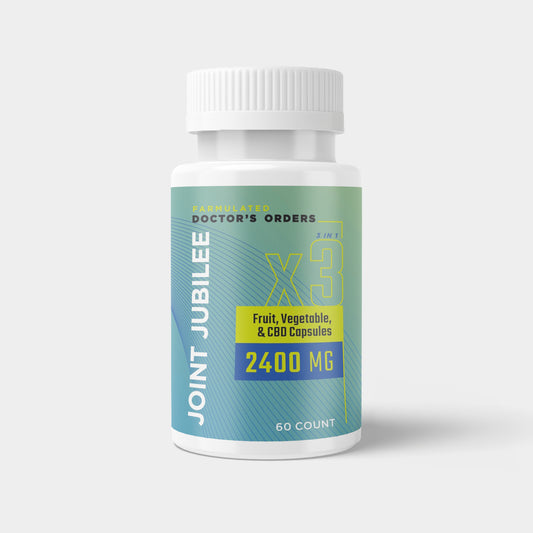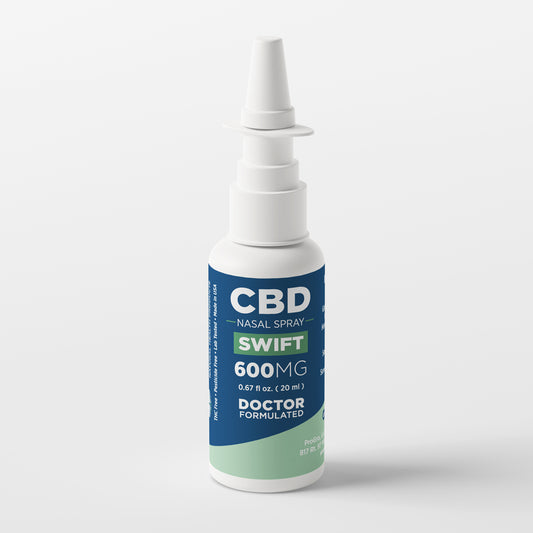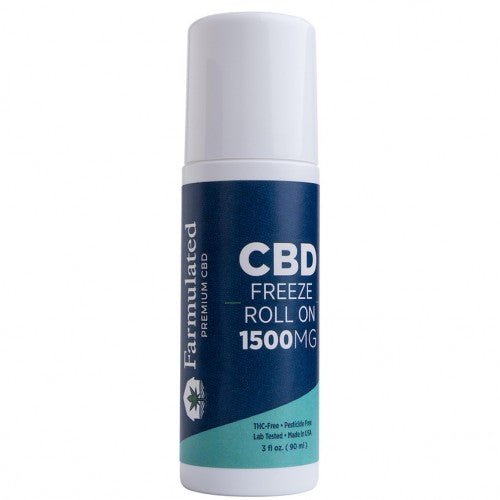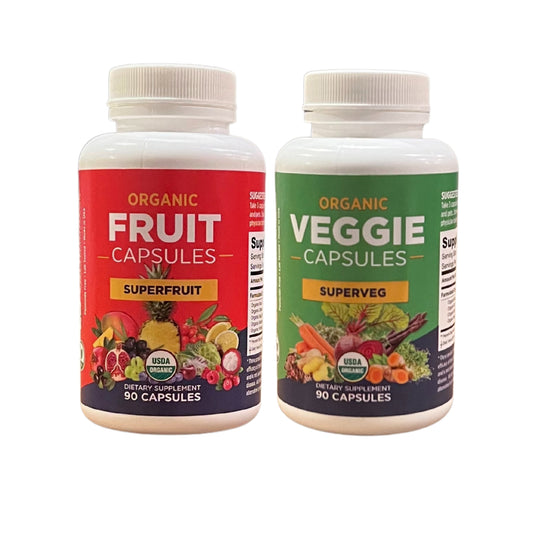If you aren’t already a part of the growing cohort of cannabidiol (CBD) enthusiasts, you probably wonder what draws CBD users to the seemingly elusive cannabis plant compound in the first place. Further, if the CBD conversation rarely intersects your social circle, you may have introductory questions like, what does CBD treat? What is the difference between CBD and marijuana? Lastly, what does CBD feel like?
Why Use CBD Products?
A 2021 cross-sectional study reports the top-cited reasons consumers use CBD products include anxiety, insomnia, stress and overall health.1 While these motives may seem suspiciously wide-ranging to non-users, the chemical body-balancing act of CBD explains why a 1000mg CBD oil tincture labeled “full spectrum” could indeed offer a multifaceted spectrum of health benefits.
To begin, all humans have what is called an endocannabinoid system (ECS) filled with receptors which help modulate the Central Nervous System (CNS),2 the sensory processor and motor skills controller within your brain and spinal cord. The CNS allows you to blink, breath and read this sentence in a typically seamless line of input to output. Thanks to your CNS, you may now be thinking, maybe that’s why marijuana users experience delayed thoughts and movements. While there is truth to that rationale regarding the psychoactive effects of cannabis sativa high in tetrahydrocannabinol (THC), CBD derived from the low-THC cannabis plant called hemp has a vastly different effect on the endocannabinoid system.
Hemp-Derived CBD Vs. Marijuana
For starters, CBD products available to consumers contain less than 0.3 percent THC, whereas Colorado-based marijuana dispensaries are reported to offer 17-28 percent potency and unregulated marijuana products may have upwards of 95 percent.3 At low levels, THC aids a CBD profile rich in cannabinoids and terpenes to best optimize the endocannabinoid system. This is because when the full spectrum of CBD works synergistically, it produces an entourage effect of symbiotic chemicals which bind to cannabinoid receptors within the ECS. Upon activation, the primary role of these receptors is to achieve equilibrium, or balance, in the body by targeting things like pain, inflammation, emotional processing, immune response and even insomnia,4 hence why CBD users claim supplementation provides such a wide range of health benefits.
Why CBD Feels Different for Everyone
What does this process feel like to a CBD user? It could depend on the product. Full spectrum or isolate CBD oils tends to have a quicker impact than CBD edibles or CBD topicals thanks to the fast-paced sublingual delivery system. While some users report an immediate calming sensation after CBD oil ingestion, others may not feel any significant difference in the hours after consuming CBD.
If this lack of an instant, momentous response to CBD products sounds disappointing, consider the time it takes for any system of the body to be optimized. Just as you wouldn’t expect a malfunctioning digestive system to regulate following one healthy meal or a weak cardiovascular system to reach peak performance after a single workout, your endocannabinoid system may take days or even weeks to respond to consistent CBD use. If you’re willing to hold on for the long-term, however, the results that greet you on the other end will be worthwhile. Imagine your body effectively targeting areas of concern by reducing pain, granting you deeper sleep or calming your anxious thoughts. That’s the power of a well-regulated ECS thanks to CBD.
Once CBD is able to build up in your system and modulate your ECS to optimal performance, you will begin to notice tiny improvements in the way you feel until eventually, consistent use may turn those small changes into tangible health benefits. Some of our customers report improved blood pressure, arthritis relief and even clearer skin!
CBD Works Best with Consistency
If you’re interested in beginning a CBD regimen, it may be helpful to track the physical and mental changes you experience in a daily or weekly journal. That way, you’ll be able to monitor the incremental impact of CBD and even increase or decrease your dosage accordingly.* We advise beginning with the recommended dose on the labels of our products. If you would rather start slow, try cutting those doses in half until you have a better idea of what your body needs to feel its best.
However you choose to begin, we hope you’ll remain open to the way CBD feels even if it isn’t the immediate calming sensation some experienced users have talked about. Remember: Just like if you were working on improving any other system of the body, only a consistent regimen can lead you to the subtle, positive health improvements that build up until you reach a state of ECS-backed equilibrium. Whether that means reduced chronic pain, less anxiety, clearer skin or better sleep, the way you feel after consistently taking CBD will explain why so many people have boarded the greener, more natural train to better health and wellness.
Interested in getting started today? Check out our full line of premium, farm-grown CBD products.
*Always consult with a physician before trying a new supplement or dosage for possible drug interactions

